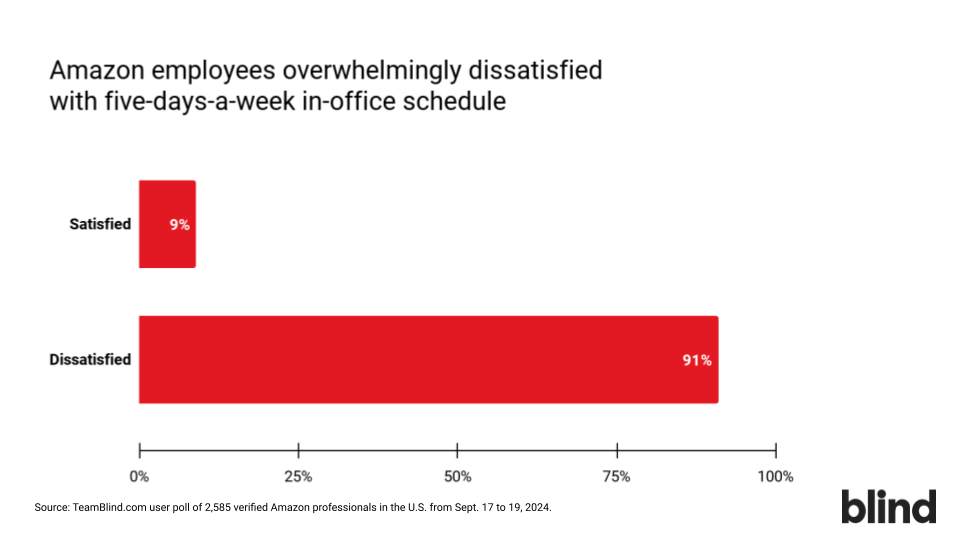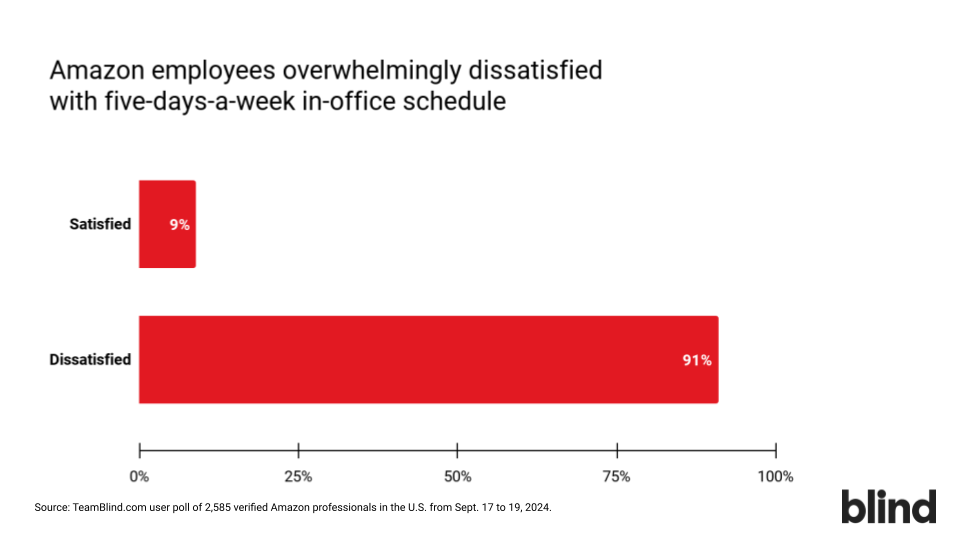Almost 3 out of 4 Amazon employees are considering resigning following a repatriation mandate: survey

'We won't know the full impact until mid-2025 when these changes are fully implemented'
Business strategy
By
Almost three out of four workers at Amazon plan to quit as they express deep dissatisfaction with the company's mandate to work five days a week from next year.
In a survey of 2,585 Amazon professionals in the United States, the anonymous job review site Blind found that 73% of employees are considering looking for a new job because of the mandate.
Another 80% said they know someone who is looking for another job because of this new policy, while 32% said they know someone who quit because of it.

Amazon CEO Andy Jassy announced earlier this month that they expect employees to return to work five days a week from January 2025 as they “believe the benefits of being together in the office are significant.”
Jassy, in his announcement earlier this month, said they realized that working in an office makes it easier for colleagues to learn, model, practice and strengthen their culture.
It also makes collaboration, discussion, and innovation easier and more effective, and makes teaching and learning seamless, according to the CEO.
Dissatisfaction with Amazon employees
But the workers were not very happy with the company's order. An internal survey circulated by employees on Slack revealed that employees are “very dissatisfied” with the work done in the office.
One certified Amazon expert told The Blind that “their work ethic is off, [I’m going to] check all the way up to the PIP (Performance Improvement Program).”
 Source: Blind
Source: Blind
Who is likely to leave Amazon?
Pavel Shynkarenko, founder of HR platform Mellow, predicts that high-profile employees who enjoy the benefits of remote work may quit.
“It is possible that high-level managers and highly skilled workers will be the ones who will leave, especially those over 40 years old with families who benefit greatly from the work in space,” said Shynkarenko in a statement sent to HRD.
On the other hand, younger workers, such as Gen Zs, may stay without wanting to leave as jobs are harder to find, he added.
“We won't know the full impact until mid-2025 when these changes are fully implemented,” Shynkarenko said.
Keep up with the latest news and events
Join our mailing list, it's free!

Source link


